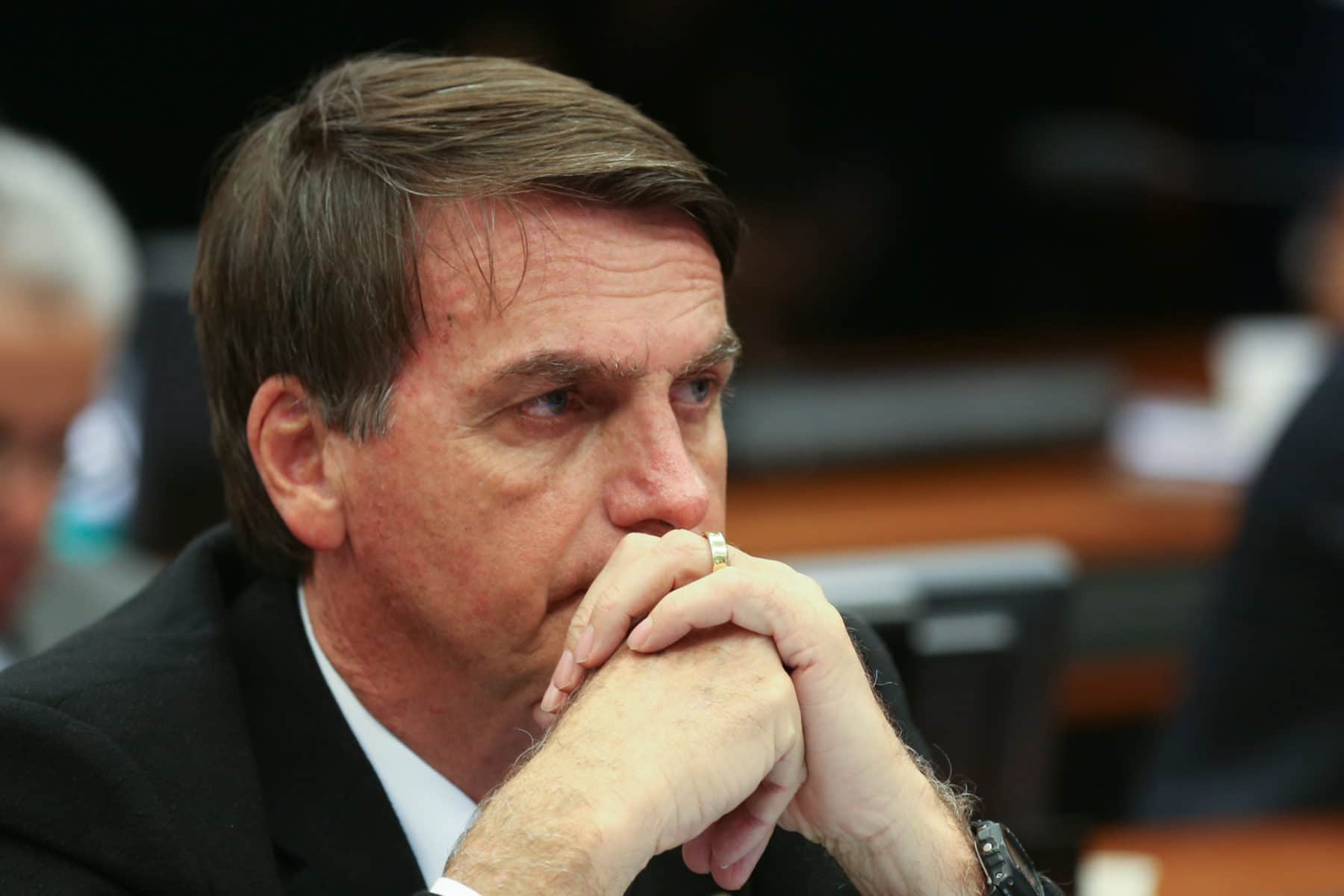Largely unreported in English-language news media, Brazilian President Jair Bolsonaro has pulled the plug on government support for harm reduction, instead calling for the promotion of abstinence and a crackdown on people who use and sell drugs.
On April 11, Bolsonaro signed a revised National Drug Policy (PNAD) in which all mentions of harm reduction were removed, while recommendations for abstinence-only programs, which were once sparsely-present, are now forefronted. The Policy guides the operations of two ministerial secretariats, one for Care and Prevention of Drugs and the other for Drug Policy.
Decree No. 9,761, as the new Policy is classified, repealed a 2002 decree that established the “National Anti Drug Policy” which, although still prohibitionist, contained an entire section dedicated to “Reduction of Social and Health Damage,” enumerating guidelines that recognized the efficacy of harm reduction and supported its implementation and promotion amongst medical professionals. “Always aim at reducing health problems associated with drug abuse, with an emphasis on infectious diseases,” reads one of its Google-translated guidelines.
Nicola Worcman, a psychiatrist specializing in addiction who formerly worked at a government-run Psychosocial Care Unit in Rio de Janeiro, attests to the harm reduction-centered policy Brazil once had. During the the HIV/AIDS crisis in the late 1980s, harm reduction programs were launched to address the use of injectable cocaine. (Opioid use is not as prevalent in Brazil as it is in the United States.) Then, when mass crack use kicked off in the early 2000s, the country’s harm reduction programs shifted to be “more centered on reducing violence and reducing social inequality,” described Worcman.
Now, Bolsonaro’s PNAD aims to reduce the “social, economic and health problems arising from the use, misuse and dependence of licit and illicit drugs” by “promot[ing] the strategy of seeking abstinence from licit and illicit drugs.”
“Decisions that Bolsanaro took will channel resources, funds, money to abstinence-only services,” said Leon Garcia of Sao Paolo’s Community Addiction Centre in an interview with Drug Reporter. Services like Garcia’s, which works with homeless people to prevent HIV and hepatitis C and promote health, already “tend to have less money,” according to Garcia.
Worcman described a similar situation to Filter: Her Psychosocial Care Unit did not have the capacity to serve everyone who needed services. “By the law, we need a unit for every 250,000 people. But there weren’t enough harm reduction programs,” she said. “My program needed to provide services to 850,000 inhabitants. We didn’t have that number of patients. But we were responsible for this.”
“One of the problems with harm reduction in Brazil: there’s not enough funding. There were not enough centers to provide treatment for everyone.”
Although, harm reduction programs like Psychosocial Care Centers will continue to be funded, programs run by the evangelical church and centered on religion, work therapy, and abstinence will receive a financial boost. The Policy calls to financially “stimulate and support” Therapeutic Communities, particularly with regards to their “work,” “improvement, development and physical and functional structuring”—a guideline that formerly had not been present in the National Policy.
To be clear though, presidents prior to Bolsonaro were also allocating funds to these programs that the Inter-American Commission on Human Rights found to commit “human rights violations including forced institutionalization, an arbitrary administration of psychotropic drugs, restricted family contact, limitations in access to personal documents and money, physical abuse, forced labor to replace staff and general services, violations of religious freedom and freedom of conscience, and the institutionalization of adolescents,” according to a 2018 report.
Even though harm reduction seems to have been deleted in exchange for abstinence-only programs, Francisco Netto of FIOCRUZ in Rio cautions against holding the two to be mutually exclusive. “It’s very important to recognize that harm reduction is not opposed to abstinence. It’s based on the idea that you can’t deny health as a right to [anyone]—even to the ones who can’t, or won’t, stop using drugs,” Netto told Drug Reporter. “So it’s very important to keep policy that reaches all the people that might need some kind of support.”
Bolsonaro’s new policy confirms advocates’ fears that Brazil’s repressive drug war would be escalated under his far-right leadership. In the past, the former artillery unit Captain has expressed support for police killings of people merely suspected of drug trafficking. He has also suggested that drug use causes people to become gay, and that drug legalization “[benefits] traffickers, rapists and hostage takers.” He offers no evidence for these beliefs.
“The new PNAD will prioritize the fight against organized crime linked to drug trafficking in the areas with the highest indicators of homicide,” said Luiz Roberto Beggiora, the National Drug Policy Secretary of the Ministry of Justice and Public Security, in a press release. “For the reduction of the supply of drugs, the integration of the police with other areas of intelligence will be fundamental.”
In response to the reorientation of the nation’s drug policy, a Brazilian delegation of harm reductionists and advocates, including Netto and Garcia, issued a call in late April at the Harm Reduction International conference in Porto, Portugal.
They are requesting “the support of the international community to ensure the continuation of harm reduction policies in Brazil and the recognition of the achievement that these policies have made over the last 30 years.”
Bolsonaro’s decision “will affect people who work on the grounds, people who need access to harm reduction,” said Christiano Marona of Brazilian Drug Policy Platform in Rio,” and we are calling the international community spread our concern and to fight with us to maintain harm reduction as a public official policy.”
Photo by Agência Brasil Fotografias via Flickr





Show Comments